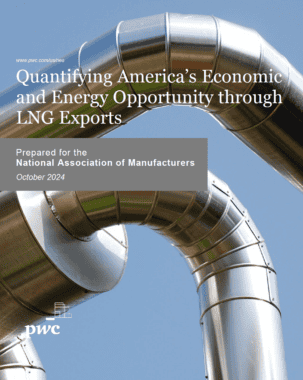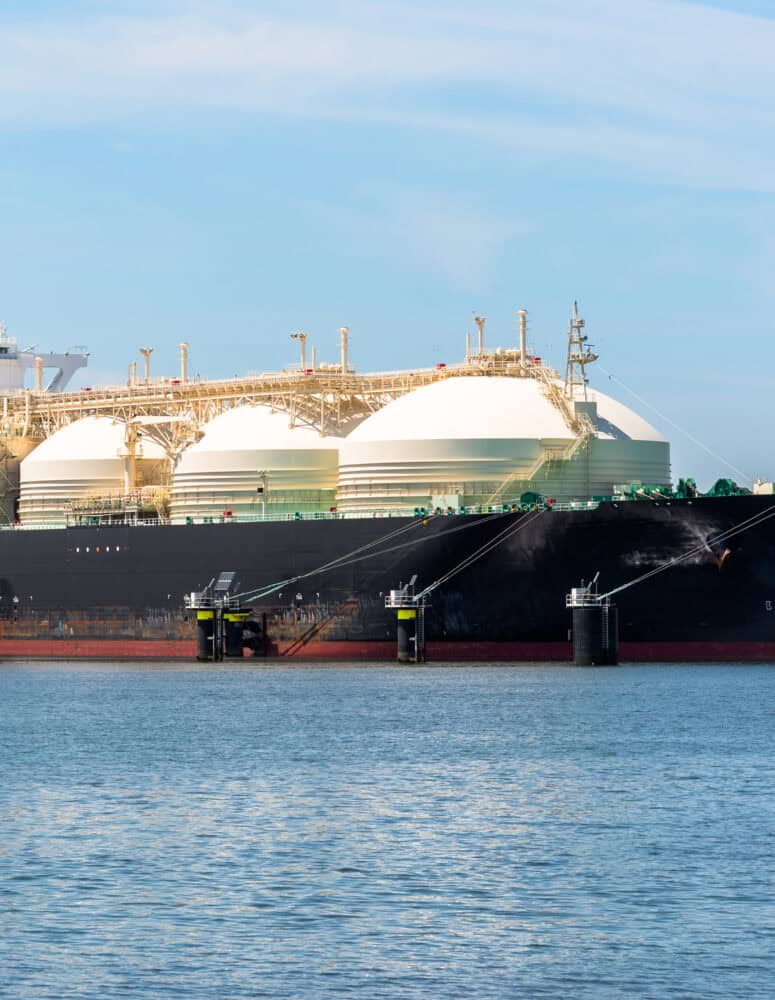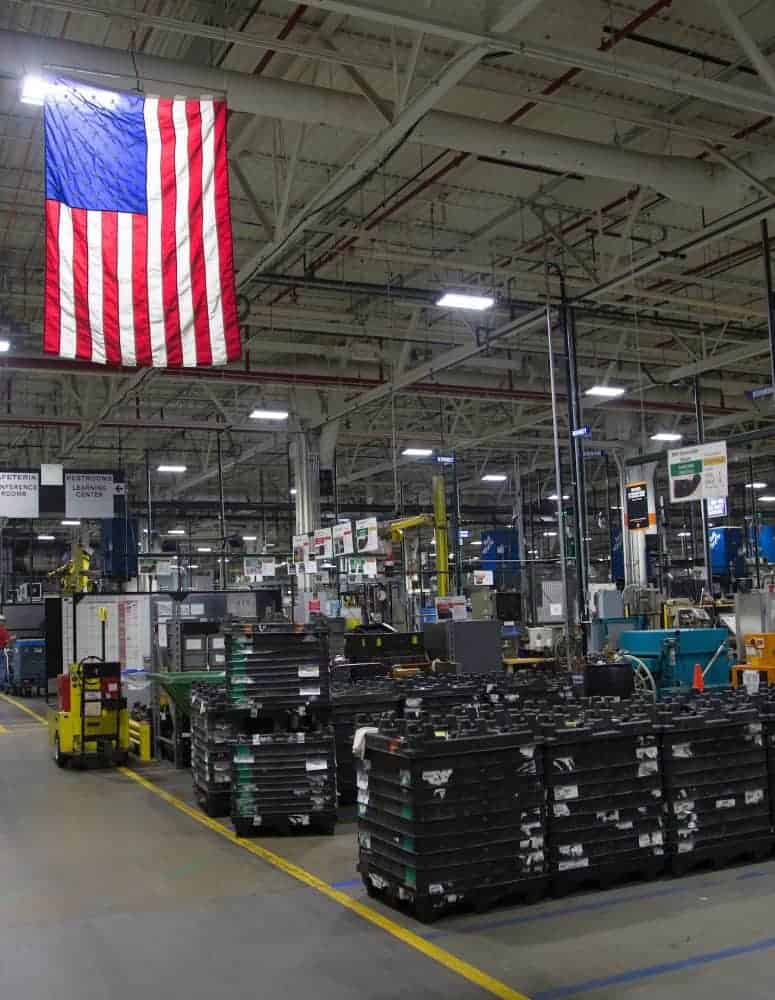The Economic Benefits of U.S. LNG Exports
By the Numbers
The contribution figures below reflect 2023 data. Based on the Department of Energy’s energy outlook without the ban, PwC calculated the at-risk benefits of LNG exports to the economy in 2044. All referenced data are found in the report generated by PwC for the National Association of Manufacturers, “Quantifying America’s Economic and Energy Opportunity through LNG Exports.”
Without a Ban, the Economy Generates:
With a Ban, the Economy Risks
America’s Economic and Energy Opportunity through LNG Exports
In 2023, U.S. LNG exports spurred historic investment in exploration, production and export facilities, creating thousands of job opportunities and boosting economic activity. But in January 2024, this economic boom came under threat when the Biden administration announced a ban on pending LNG export approvals to non-FTA countries, creating long-term economic and national security risks that would cripple our global competitiveness and stifle domestic innovation and job-growth.
In the report Quantifying America’s Economic and Energy Opportunity through LNG Exports, the NAM engaged PwC to quantify the current and projected economic contributions of US LNG exports – and the great economic losses should the ban on U.S. LNG export approvals move forward.
Public Opposition
In March of 2024, following the DOE’s January announcement of a U.S. LNG export freeze, the NAM surveyed a nationwide sample of registered voters on their general level of support of the agency’s announcement. The results overwhelming showed a bipartisan opposition to the agency’s freeze on export permits for new LNG projects.
Key Findings:
- 87% of respondents agree the U.S. should continue to export natural gas.
- 76% of respondents agree with building more energy infrastructure, such as port terminals, here in the U.S.
- 74% of respondents agree with boosting production of domestic oil and natural gas in the U.S. instead of depending heavily on foreign energy sources.
- 72% of respondents prefer that American energy policy use an all-of-the-above strategy that includes oil and natural gas and renewable energy sources.
- 86% of respondents agree that we should change the permitting system so it doesn’t take so long for new energy infrastructure projects to be approved.
Share Your Voice
Manufacturers, by sharing their voices, play a vital role in advocating for America’s competitive energy future. By submitting a short story or quote, you’re joining manufacturers helping to protect U.S. energy security and create thousands of well-paying jobs.
Example questions to consider:
- Why should the U.S. continue to export natural gas?
- Why is it important that the U.S. becomes less dependent on foreign sources of oil and natural gas?
- How can manufacturing’s competitiveness strengthen from an all-of-the-above energy strategy that includes oil and natural gas and renewable energy sources?



